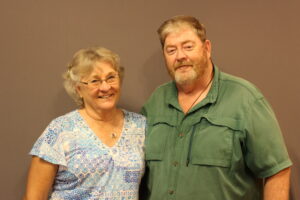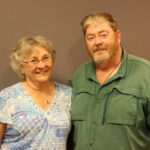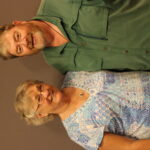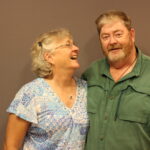Description
Marlene Boucher (72) talks to her husband, Rodney Boucher (63), about their relationship and his extensive career serving in the Navy.Subject Log / Time Code
RB and MB share the story of how they met in Oahu through a mutual friend's paddle boarding club.
RB at the age of 12 knew he wanted to be in the military. After graduating from high school he would join MEPs in Albuquerque, NM.
RB spent some time at electronic warfare school in Pensacola, FL. He shares travel stories from his time in San Diego, Mt. Whitney, Europe, and the North Atlantic.
RB remembers a time he and his family went to Dublin, Ireland and Lakenheath, England.
RB describes his transition from working on ships to submarines in the Navy.
RB was in the first submarine to stop in Subic Bay, Philippines. RB talks about his longest assignment which kept him 63 days under the sea and resurfaced in Japan.
RB was stationed in Hawaii to work on anti-terrorism and became a paratrooper, completing over 89 jumps.
RB went in as an Admiral for NATO during the Bosnian War.
RB talks about trying to propose to his now-wife over the phone but was denied. He would surprise her with a proposal during his retirement speech.
Participants
- Marlene Boucher
- Rodney Boucher



